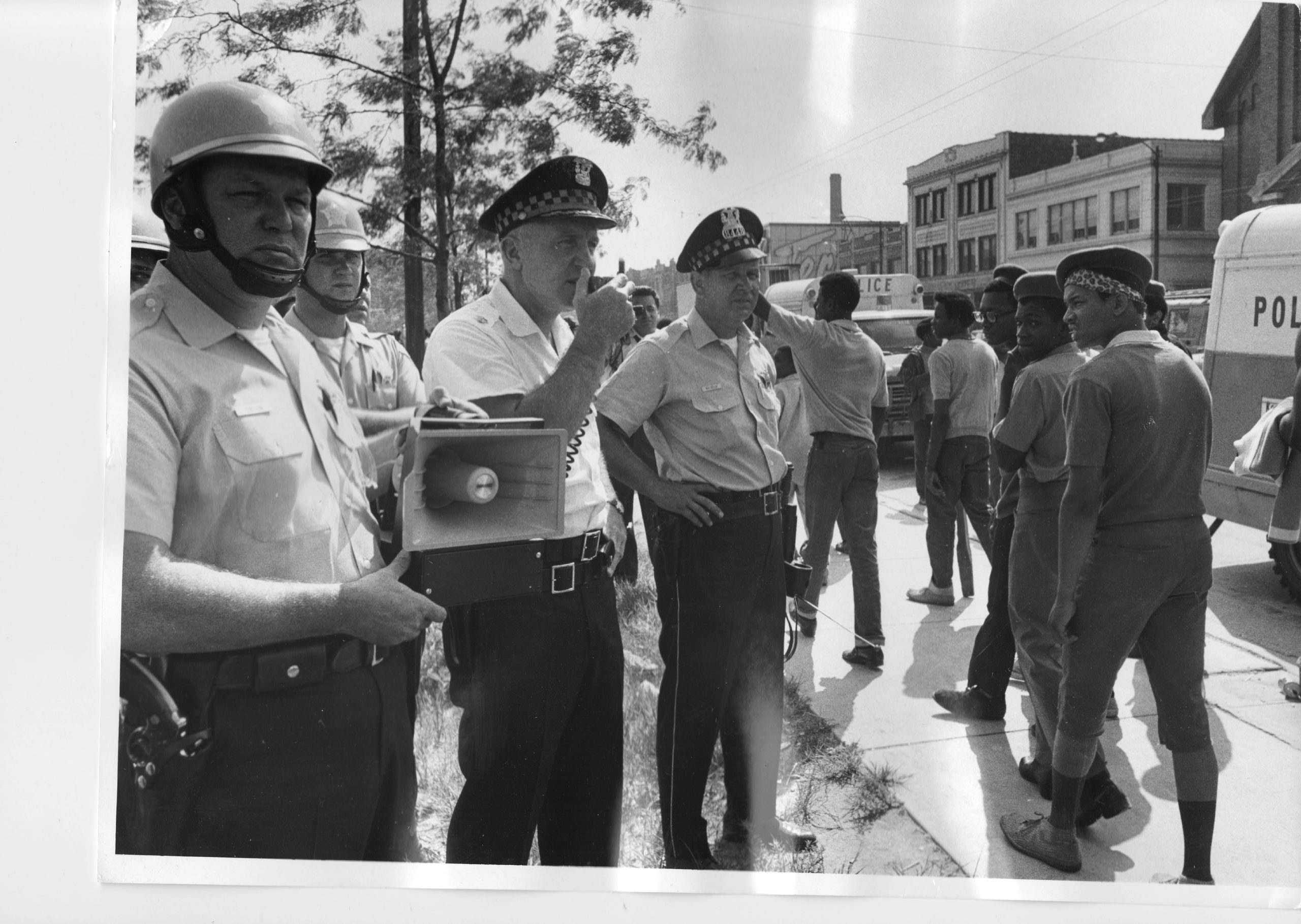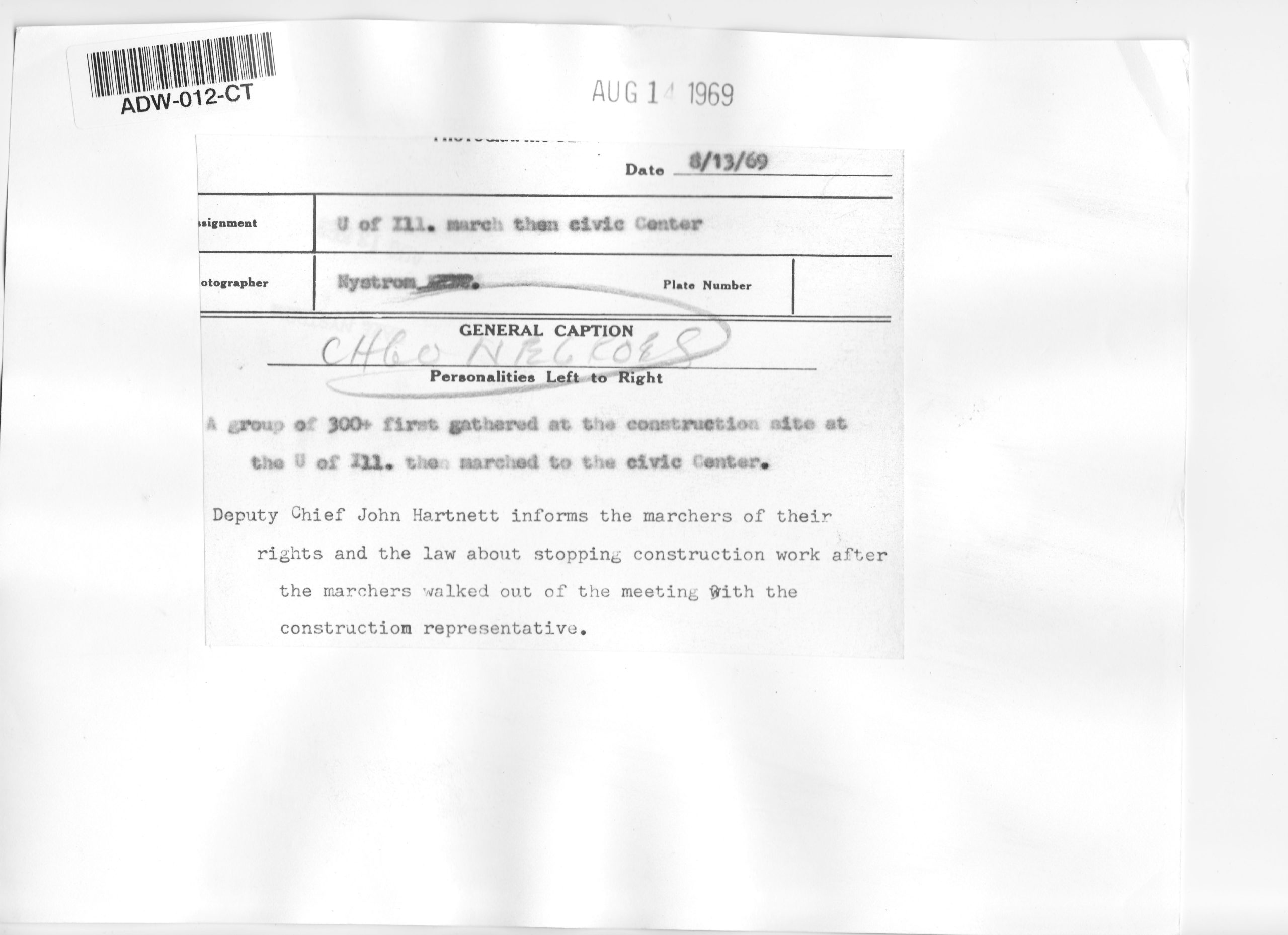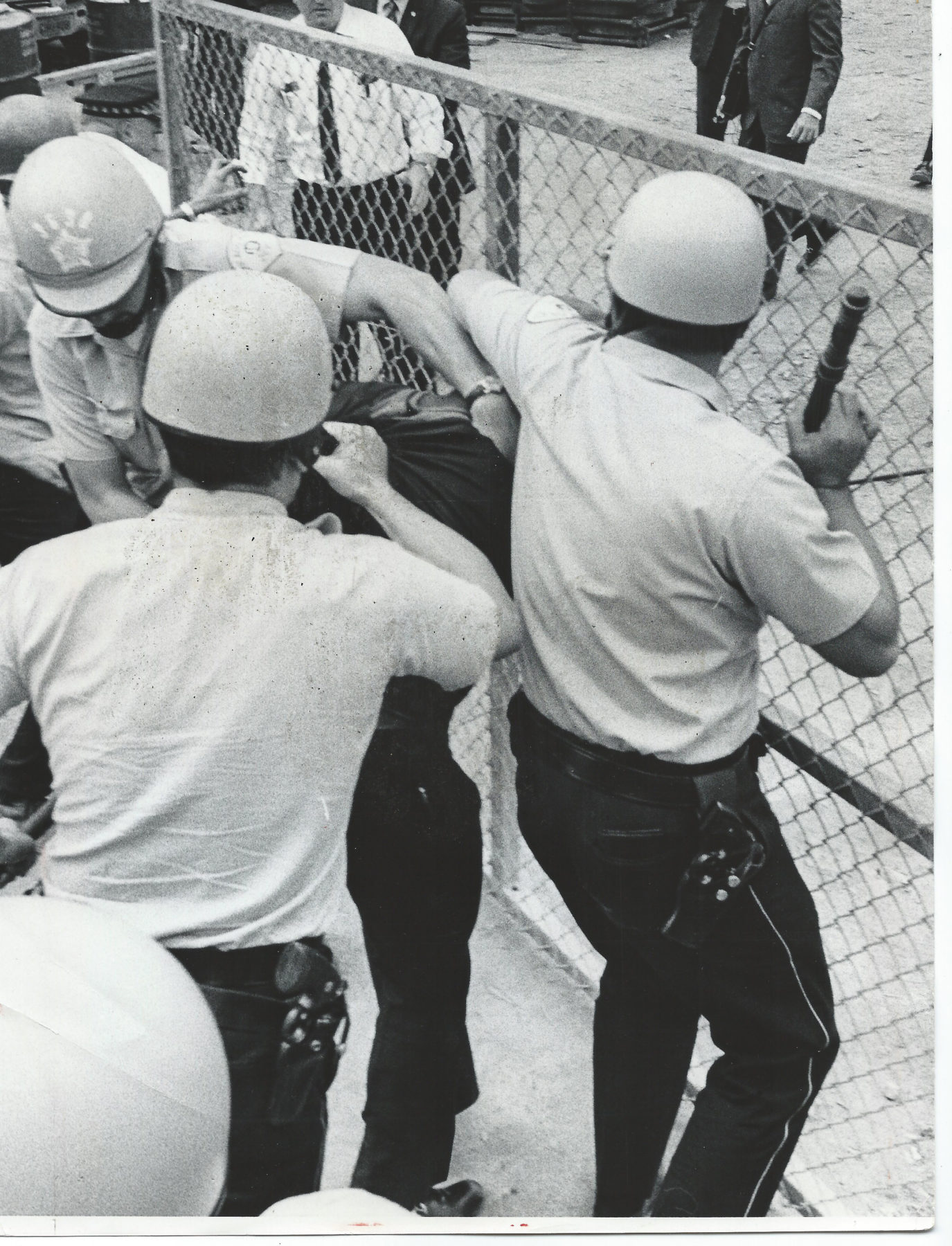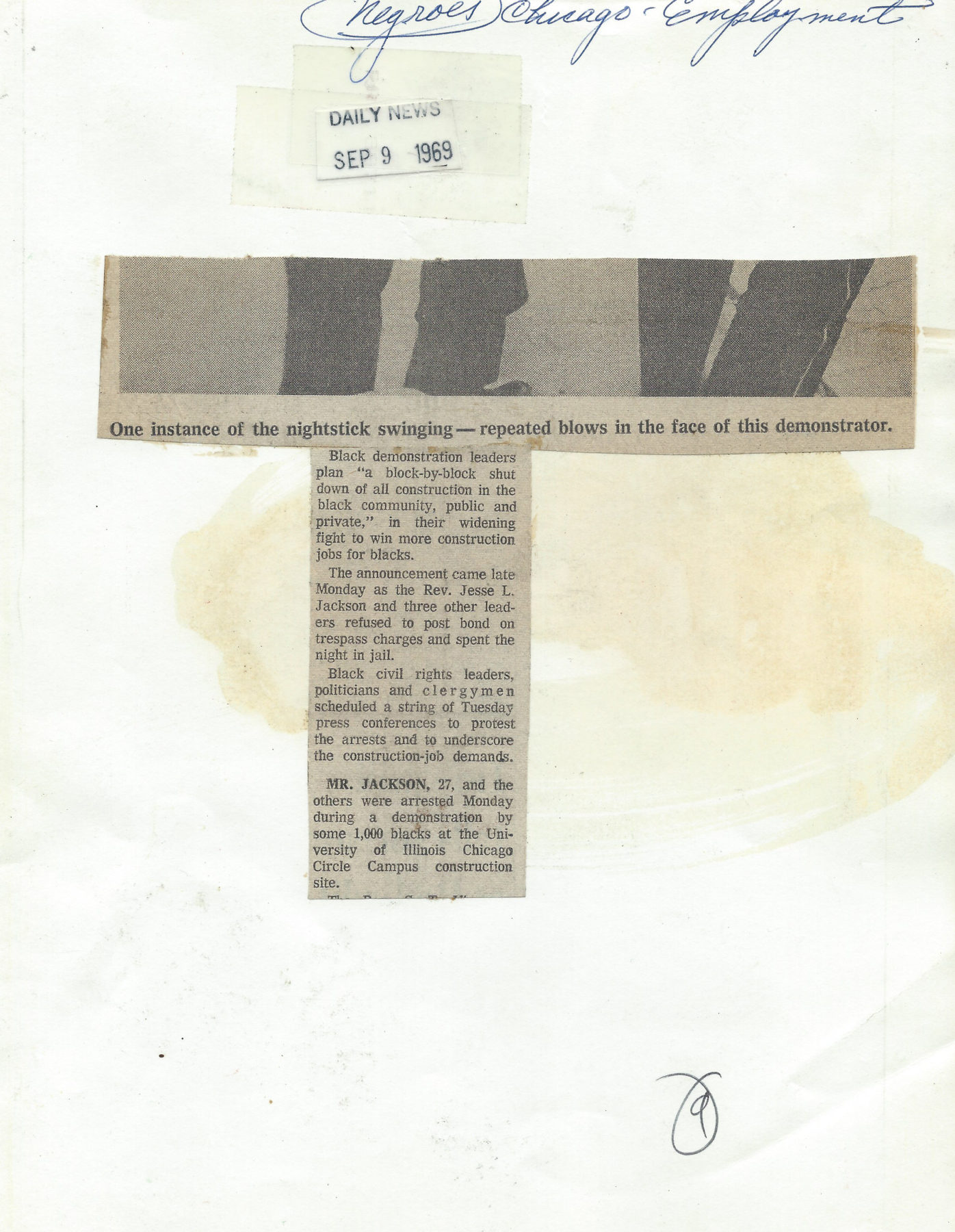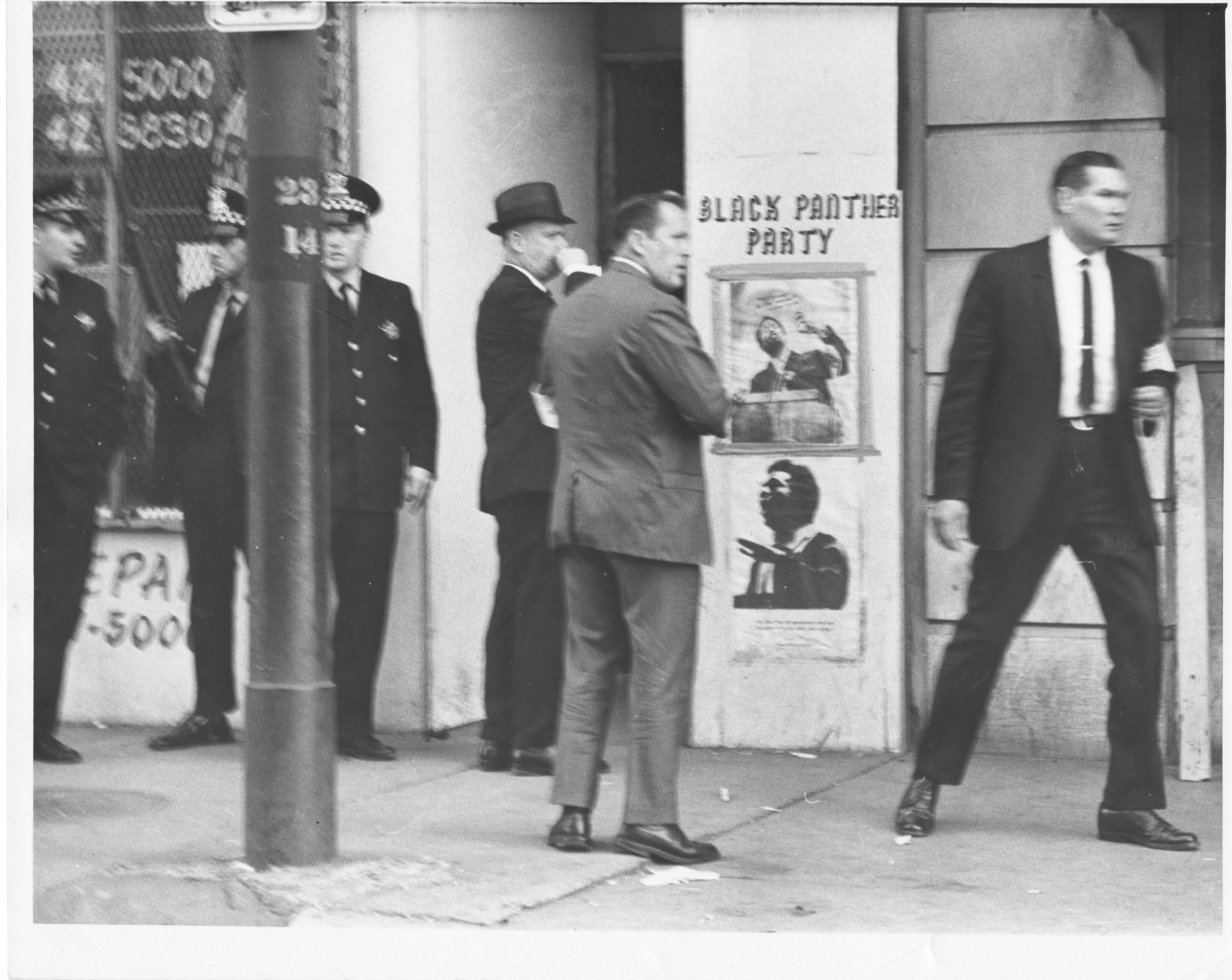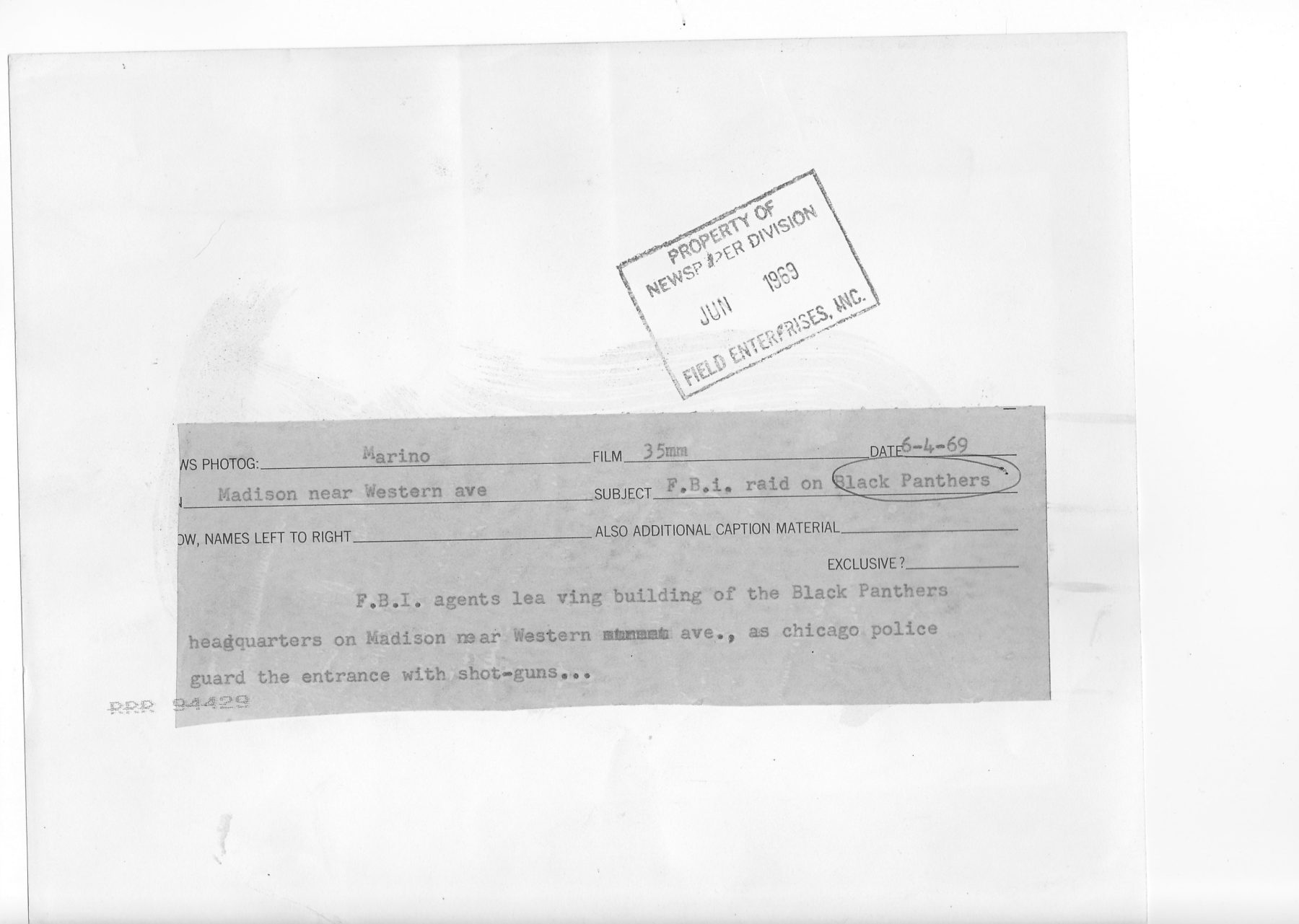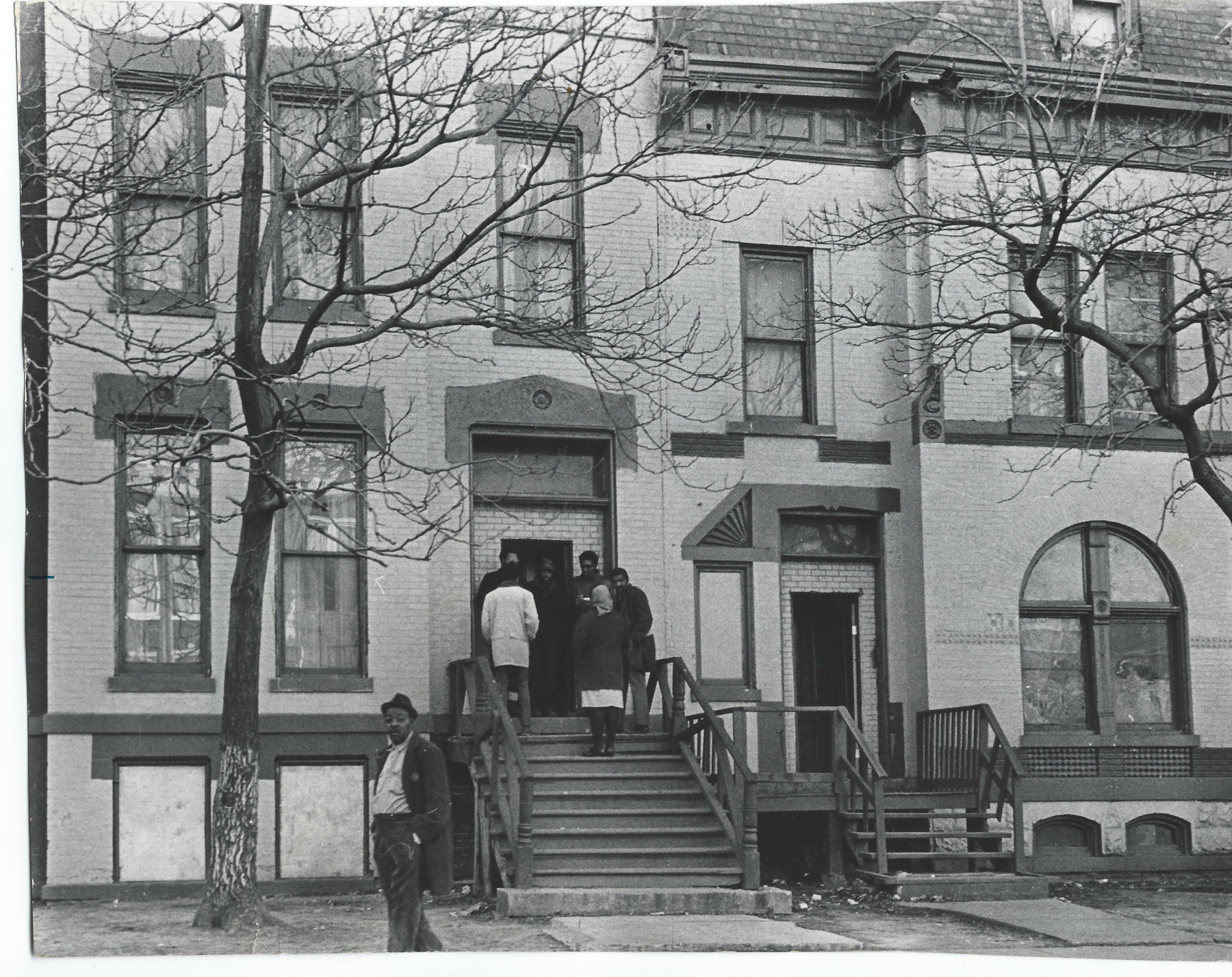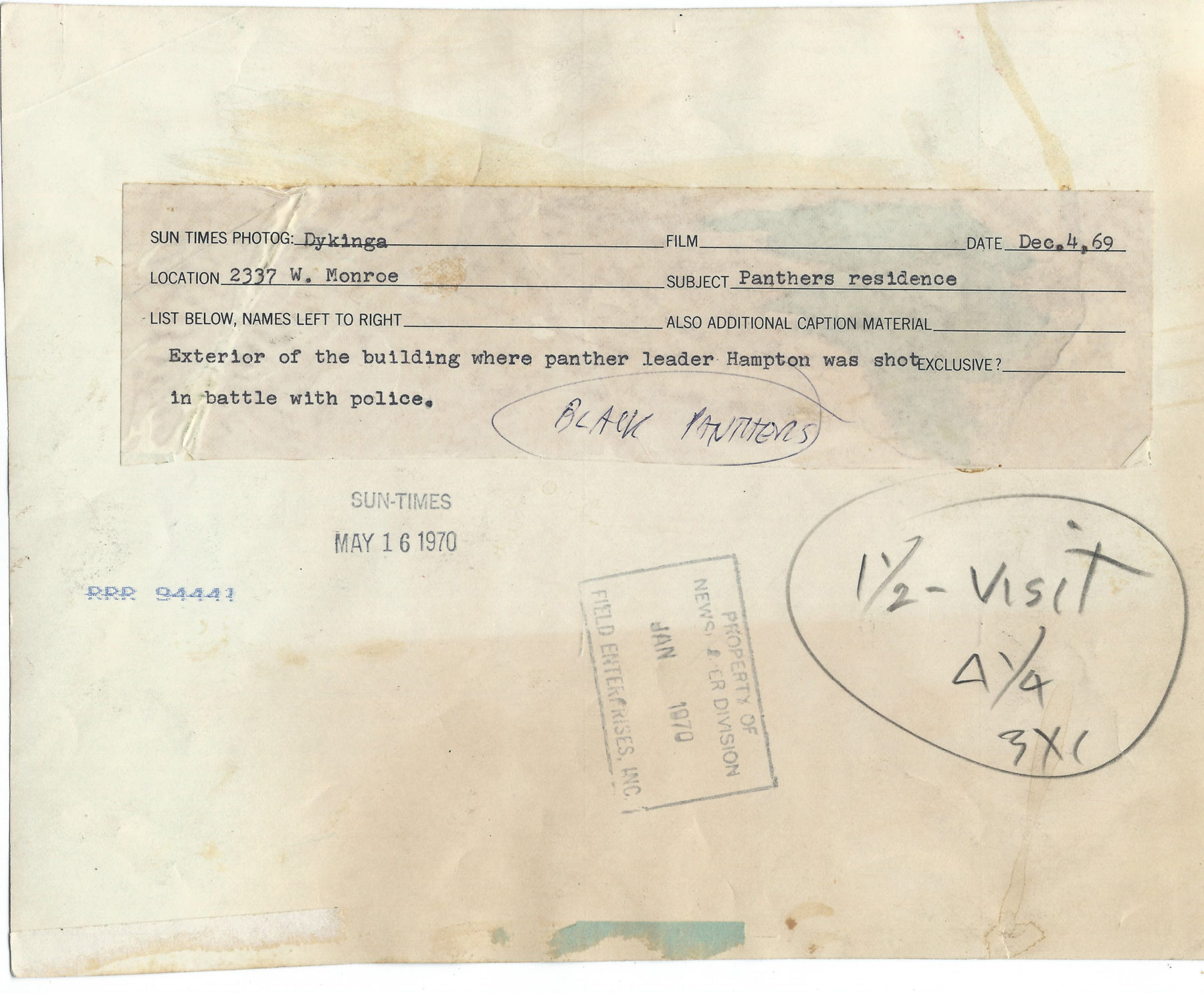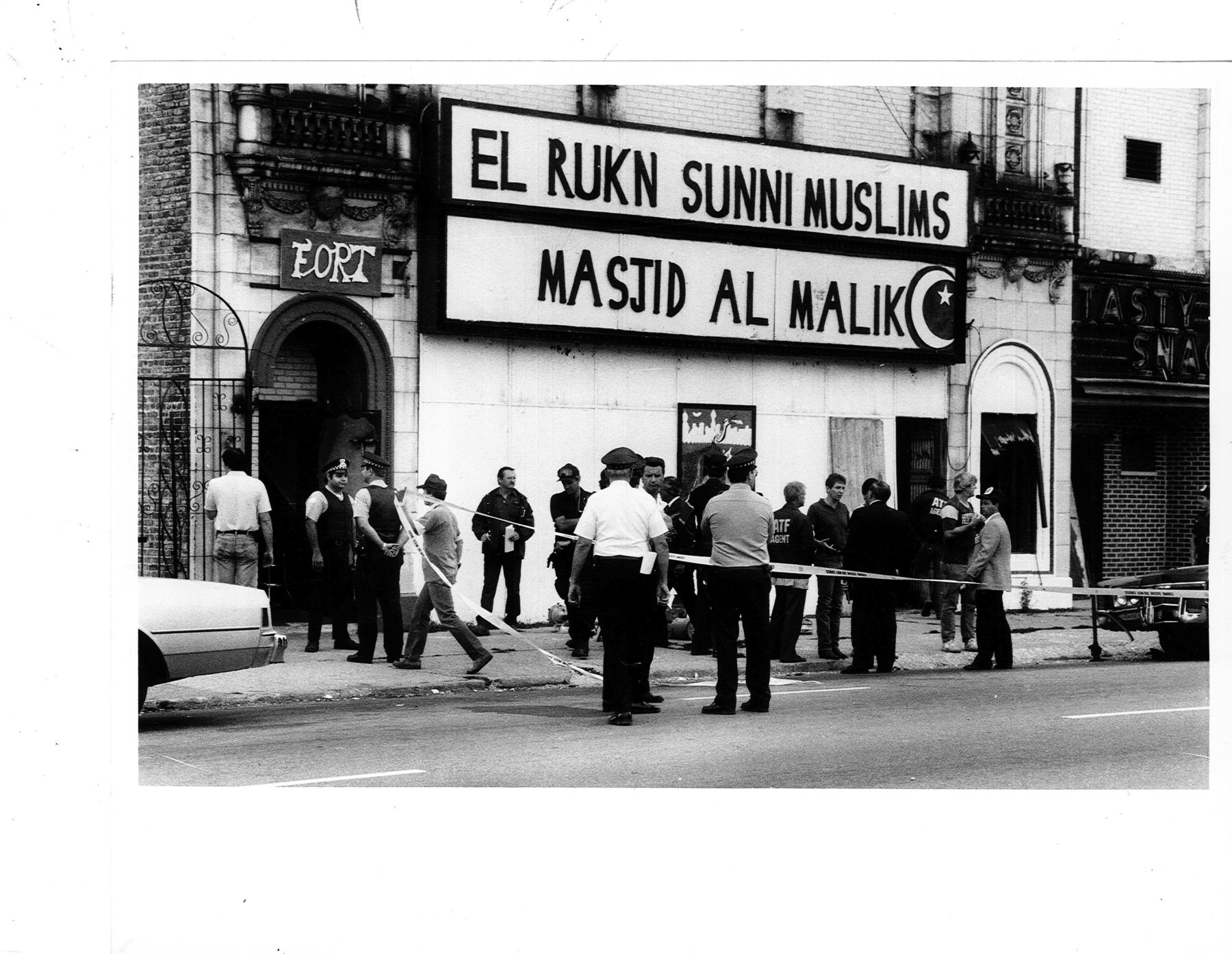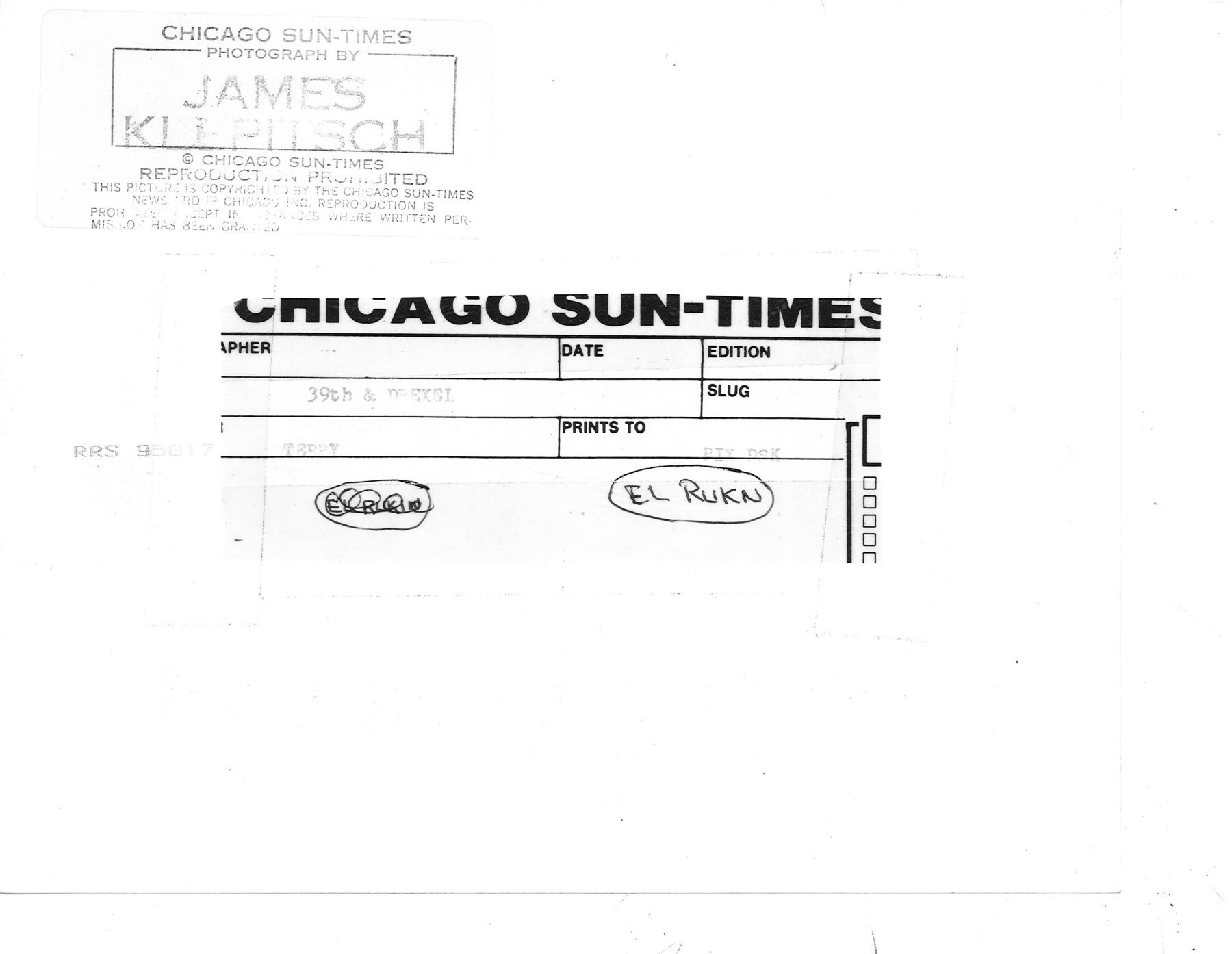6. Black Power and the Police
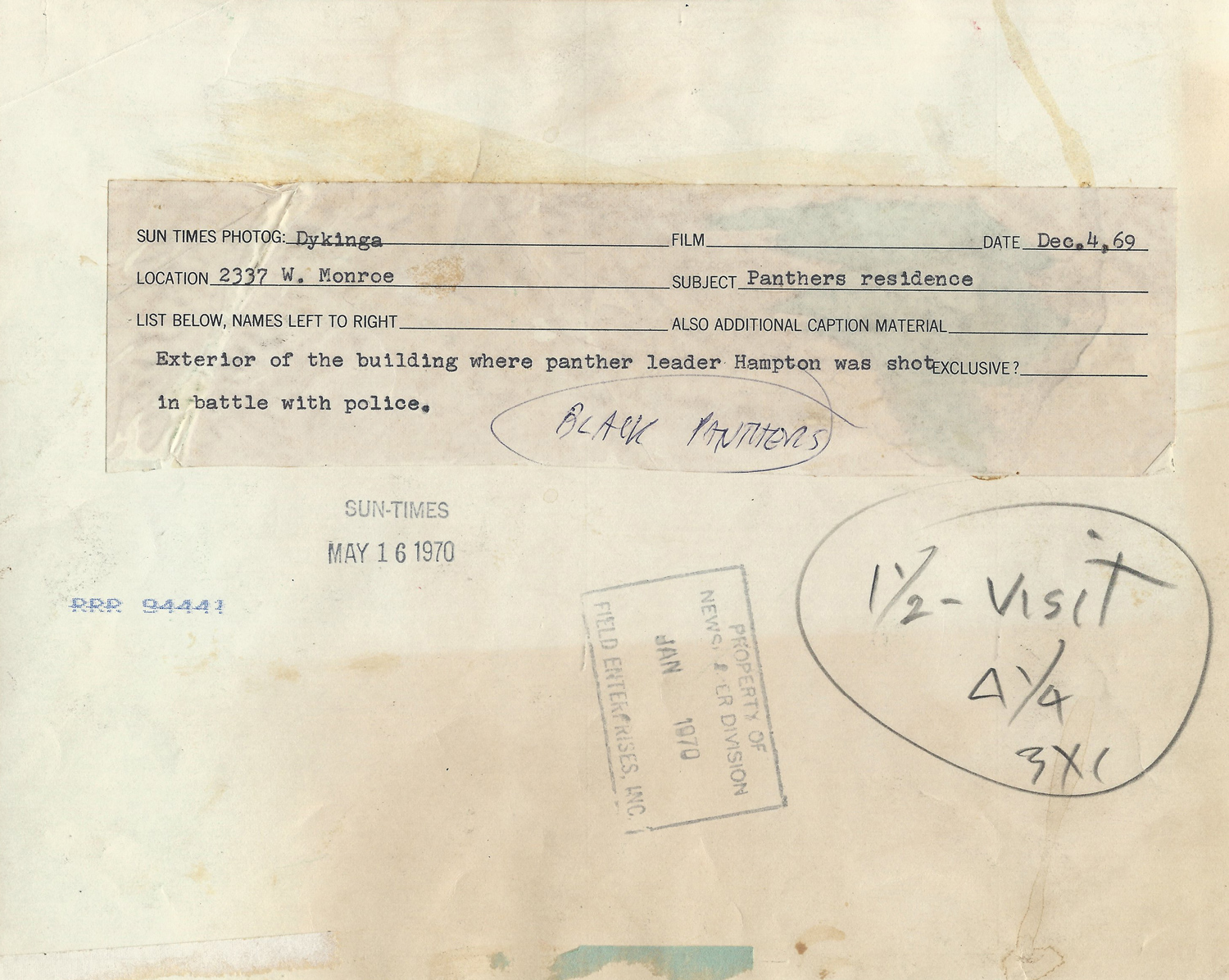
The Chicago Police Department (CPD) has long been plagued by scandal and abuse of power, including the torture conducted over decades by Commander Jon Burge and the more recent police murders of Rekia Boyd in 2012 and Laquan McDonald in 2014. The CPD and the FBI heavily targeted many different organizations that were connected to the Black Freedom Movement and Black Power, including many of the artists of the Black Arts Movement (events held at the Wall of Respect, for example, were heavily surveilled, and Phil Cohran’s Affro-Arts Theater was harassed and temporarily shut down for code violations that had never troubled anyone during the building’s prior life as a movie house). Police also routinely harassed Black youth on the South and West Sides. The police response to the August protests at the 1968 Democratic National Convention, held in Chicago, was deemed a “police riot” by the Walker commission established to address the unrest surrounding the convention. Police routinely intimidated and attacked peaceful protesters (for example, at the job campaign’s marches in 1969, 6.1 and 6.2).
The CPD’s Red Squad focused substantial energies on Black organizations that had no connection to communism, despite its purported anti-communist mission; police indiscriminately targeted community organizations, activist groups, and gangs alike. In 1967 the police made an additional commitment to squashing gang activity by establishing a Gang Intelligence Unit (the GIU and Red Squad papers are both housed at the Chicago History Museum and are made available to researchers under certain conditions). And in 1969, Chicago Mayor Richard J. Daley and Cook County State’s Attorney Edward Hanrahan went a step further and declared a “War on Gangs.” It was in this context that they arrested Bobby Gore (see 2.5), Jeff Fort, and other leaders. The Black Panther Party (BPP) was no gang, but did make overtures toward gang leaders in an effort to create a broader Black political coalition, a prospect that especially terrified those in power. Hanrahan and the FBI targeted the BPP in a series of attacks (6.3) that included the murder of Illinois BPP leaders Fred Hampton and Mark Clark on December 4, 1969. Displaying the evidence that showed Hampton was gunned down in his sleep, Party leaders opened Hampton’s apartment to visits by a broad swath of members of the Black community (6.4).
Gang leaders’ interest in community development was never uncomplicated, but rather than encouraging a broader evolution in that direction, the War on Gangs squelched it. Hard drugs and weapons flowed more freely into Chicago in the 1970s and 80s. During these decades the Blackstone Rangers—renamed first the Almighty Black P. Stone Nation and eventually the El Rukns—converted to Islam and took over the former Affro-Arts Theater, transforming it into a mosque and headquarters (6.5). In the 1980s, police raided the building multiple times, and it was finally demolished in 1990.
Photographer: Dave Nystrom
Chicago Tribune
8/13/69 (stamped 9/14/1969)
Photographer unknown
Chicago Daily News
9/9/69
Photographer: Marino
Field Enterprises (Chicago Sun-Times or Chicago Daily News)
6/4/69
Photographer: Jack Dykinga
Chicago Sun-Times
12/4/69 (stamped 1/70 and 5/16/70)
Photographer: James Klepitsch
Chicago Sun-Times
1986 (likely August)
